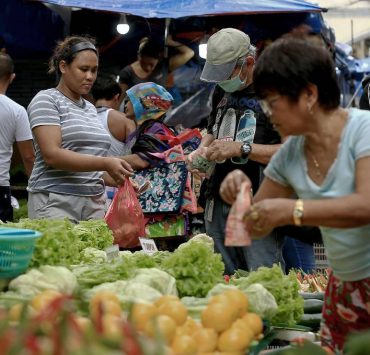In PH retail stores, novel products trump high prices

The country’s retail sector is projected to grow by 5 percent in 2024, fueled by the ongoing expansion of modern stores, a report by the US Department of Agriculture (USDA) said.
The USDA’s Foreign Agricultural Service (FAS) forecast this year’s retail sales to grow to $119 billion from $113 billion the year prior.
“Modern retail store expansion to key cities and provinces generates additional retail sales. Stores continue exploring new imported food and beverage products to offer novel options to consumers,” the USDA-FAS said in a report.
The foreign agency is expecting a continued expansion in the local food manufacturing sector, projecting a 5-percent growth, despite some manufacturers jacking up their production costs amid higher raw material prices.
“Due to still-elevated inflation rates, local companies continue to face increasing input costs, including higher costs of raw materials,” the report read.
Meanwhile, the food service sector is seen to climb by 15 percent, surpassing prepandemic levels, due to the recovery of tourism and the resumption of dining out and other social events.
“New stores, restaurant concepts, kiosks, and pop-up stores open as more consumers dine out and travel,” it added.
Exploring new strategies
It said retailers were exploring various strategies to attract more customers such as cross-selling, launching new products and highlighting imported product displays as most return to brick-and-mortar stores.
The USDA said the Philippine retail sector provided “strong opportunities” for US food and beverage products including chicken, pork, beef cuts, chocolate, cookies, sauces and preparations, seasonings and dog and cat food.
According to the report, local supply constraints caused by low farm production, recent typhoons and African swine fever presented opportunities to bring in imported agricultural goods to the archipelago.
Among the fastest-growing economies in Southeast Asia, the Philippines was the ninth-largest market for US agricultural and related products in the previous year, valued at $3.6 billion, the report stated.





















